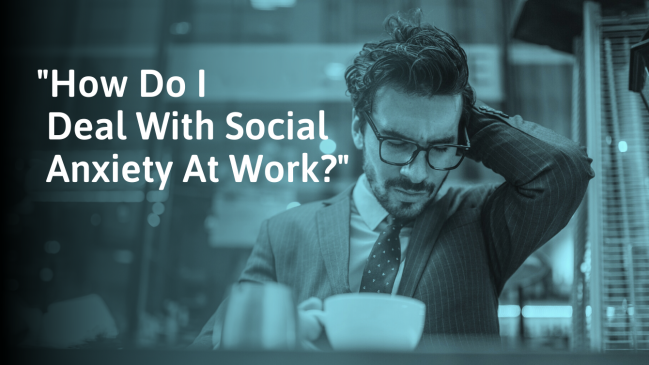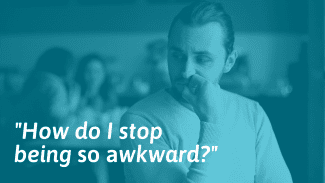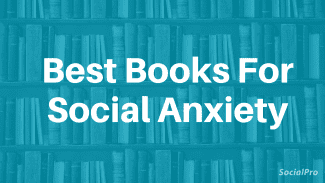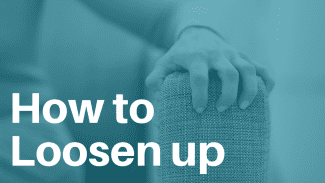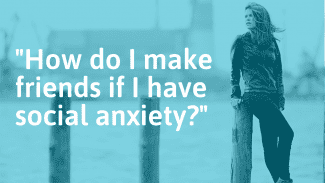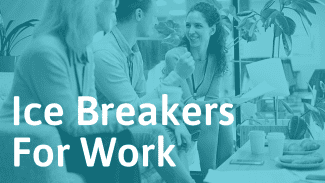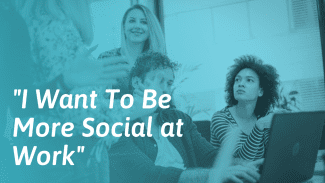Social anxiety disorder (SAD), also known as social phobia, is a long-term fear of social situations that gets in the way of everyday life. People with SAD are often afraid of being judged or doing the wrong thing when they’re in social situations. They may feel as though everyone is scrutinizing them. SAD can also cause physical symptoms such as sweating, blushing, and nausea.
Work can be challenging for people with SAD because most jobs involve interacting with people, receiving criticism, and ongoing performance reviews, all of which can trigger extreme anxiety. In this guide, you’ll learn practical tips for coping with social anxiety at work.
- Dealing with social anxiety at work
- Telling your employer about your social anxiety
- Common questions
How to deal with social anxiety at work
To overcome your social anxiety, you need to understand why you feel anxious, challenge your unrealistic thoughts, and gradually face your fears. You can also learn how to calm yourself down when you feel anxious.
Here are some strategies that can help you reduce your social anxiety at work.
1. Understand the cycle of social anxiety
When you understand how social anxiety starts and why it continues, you may feel empowered to tackle it.
It can help to remember that our thoughts, feelings, and actions are all linked in ways that can keep social anxiety going.
Here’s an example of how thoughts, feelings, and actions can keep you trapped in a cycle of social anxiety:
- You have an unhelpful thought (e.g., “My coworkers all think I’m boring”).
- Your actions are shaped by that thought (e.g., you avoid making conversation with your coworkers by eating lunch alone at your desk).
- As a consequence of your actions, you feel worse about yourself (e.g., you feel lonelier around your coworkers). This can fuel further negative thoughts, such as “I’m useless at talking to people,” which in turn means you keep avoiding social situations.
Social anxiety often comes with physical symptoms that can also keep you stuck in the cycle. For example, you might blush and sweat more than usual when talking to other people. If you’ve had these symptoms before, you might be anxious that you’ll experience them again, which can make you even more reluctant to socialize.
2. Identify your anxiety triggers
You might find some work situations much harder than others. For example, you might feel OK about talking on the phone but be terrified by the thought of making small talk with people you don’t know well.
Try to pinpoint precisely what makes you anxious at work, and make a list of your triggers. You might find it helpful to read this article on improving your interpersonal skills at work to create your list of triggers.
Next, create a fear ladder by ranking your fears from least to most threatening.
For example, saying “Hi” to a coworker when you get into work might cause you only a small amount of anxiety, but giving a presentation, making small talk in the canteen, or going to an after-work happy hour may make you feel very anxious.
Start by ranking 5-10 of your fears. If you can identify more than 10 triggers, pick the 10 that cause you the most anxiety.
3. Face your fears
To overcome your social anxiety, you need to prove to yourself that you can handle the situations that make you afraid. This involves deliberately exposing yourself to the things that make you afraid. You can do this by exposing yourself to the items on your fear ladder, starting with the least scary.
In general, it’s best not to aim for huge changes overnight. Instead, take a gradual approach to building your confidence.
For example, if you’re afraid of small talk in the breakroom, you could start by challenging yourself to make eye contact and smile with two colleagues during one of your breaks. When you’ve done this a few times, challenge yourself to greet them with a “Hi” or “Hey, how are you doing?”
4. Accept discomfort
By definition, facing your fears is uncomfortable. If you are determined to overcome your social anxiety, you need to accept that there will be times you feel anxious, scared, or panicky.
Remember that there are many things you do, or have had to do, despite feeling uncomfortable or resistant. For example, at school, you probably completed your homework (at least some of the time) despite feeling bored. At home, you probably have to get your chores done despite feeling tired. The same idea applies to facing your fear of social situations.
5. Stop using avoidance strategies
It’s natural to avoid the things you fear. People with social anxiety often use a range of avoidance strategies, such as:
- Making excuses to avoid meetings, conferences, or social activities at work
- Eating lunch at your desk rather than in the breakroom to avoid your colleagues
- Avoiding eye contact during conversation
- Only communicating by email to avoid face to face discussions
- Relying on alcohol to cope during work parties or lunches
But avoidance only works in the short term, because it doesn’t help you make any positive changes.
For example, staying away from the breakroom at lunchtime will make you feel more comfortable if small talk makes you anxious. But if you never give yourself the chance to practice your skills, it’s unlikely that your anxiety will go away. To overcome social anxiety, you need to deliberately expose yourself to situations that make you anxious.
6. Challenge and replace your negative thoughts
People with social anxiety often have negative, unhelpful thoughts about themselves, other people, and the world. Often, these thoughts are untrue or exaggerated.
For example, if someone with social anxiety gets flustered in a meeting when they’re putting forward an idea, they might jump to the conclusion that they “can’t speak in public.” These thoughts are not logical, but they can seem very convincing and keep the cycle of social anxiety going.
To challenge your negative thoughts, you can use a technique called cognitive restructuring:
- First, identify your negative thought. E.g., “I always make myself look stupid in meetings.”
- Second, ask yourself, is this thought really accurate? Often, our negative thoughts aren’t based on objective facts.
- Third, try to find evidence that your thought is wrong. E.g., you could remind yourself that your boss has praised your contributions in past meetings.
- Finally, try to think of a more constructive thought that is more realistic and balanced. E.g., “I find it hard to speak up in meetings, but I do have some good points to share.”
For more tips, check out this guide on how to deal with negative self-talk.
7. Focus your attention away from your anxiety
People with social anxiety tend to focus on themselves and their feelings instead of others around them, which often makes their anxiety even worse.[1] When you feel overwhelmed in a social situation, it can help to deliberately direct your attention elsewhere.
For example, you could challenge yourself to find an object in the room that matches each color of the rainbow.
8. Remember that many people are socially anxious
It’s easy to think that your coworkers are more confident than you. But research shows that lots of people have social anxiety disorder; around 12% of US adults will experience it at some point in their lives.[2] It can help to remember that you probably work with at least one or two people who understand how you feel.
9. Practice making small talk
Making small talk is an essential social skill. It might feel boring or pointless, but it serves several purposes at work. For example, chatting to your colleagues can improve your working relationships. It can also be the first step in making friends at work.
Our article on how to make small talk contains lots of practical advice that will help you learn how to have casual conversations.
It may help to practice small talk outside of work in less pressured situations. For example, you could practice saying “Hi, how are you?” to a cashier or neighbor, then build up to longer exchanges as you become more confident.
10. Prepare for work meetings in advance
If meetings make you nervous, it may help to bring along a bullet point list of questions you’d like to ask or issues you want to discuss. A list can be a useful backup if your mind goes blank under stress.
11. Prepare things to say to your coworkers
You can’t predict exactly what people will say to you, but you can probably guess what kind of questions they’ll ask. This means you can prepare some questions and answers of your own in advance, which can help you to combat shyness and anxiety in social situations.
For example, it’s likely that on a Monday morning, someone will ask you, “So how was your weekend?” On your way to work, you could take a minute to think of one or two things you could say about the weekend.
However, don’t try to recite prepared answers word-for-word, because you might come across as robotic. Try to think of events you can mention instead, and then use words that feel most natural in the moment.
12. Learn how to deal with criticism
Judgment and criticism are major anxiety triggers for many people with social anxiety, who tend to be particularly sensitive to negative feedback.[3] It can be difficult not to take criticism personally, but it’s a normal part of life in the workplace.
Here are a few constructive ways to deal with negative feedback:
- Ask how you can improve. Try to focus on what you’ll do differently in the future, not what you’ve done in the past.
- Accept your feelings. Almost everyone, whether or not they have social anxiety, dislikes criticism. It’s OK to feel angry, sad, or embarrassed; you don’t have to “just get over it.” Accepting our feelings usually helps them to pass.[4]
- Remind yourself of things you have done well. If someone criticizes you for one piece of work, it doesn’t detract from all the things you’ve achieved. Try to keep a balanced view of yourself. For example, you could tell yourself, “OK, I didn’t do so well here, but I did well on my last two projects. That shows I’m competent. I just need to fix this issue.”
The National Social Anxiety Center has a useful guide to coping with criticism, including unhelpful criticism.
13. Practice deep breathing
Breathing exercises are a quick, effective way to calm yourself down when you’re feeling tense or panicky.
One simple exercise you can try is square breathing, also known as box breathing. Make sure you’re sitting up straight before starting the exercise.
- Gently exhale through your nose
- Inhale slowly through your nose while counting to 4
- Hold your breath while counting to 4
- Exhale slowly through your mouth while counting to 4
- Finally, hold your breath again for a count of 4
You can repeat the exercise several times.
14. Ask a friend to role-play work scenarios with you
Role-playing can help you practice handling challenging social situations at work. You’ll need a friend who is willing to take the role-play seriously and give you feedback on what you did well and what you could improve on. Make sure your friend knows exactly what you need from them.
For example, if talking to your boss makes you feel anxious because they tend to be quite abrupt and unfriendly, ask your friend to be brusque when you act out the scenario.
Here are some scenarios you could practice:
- Attending a job interview; you could use this list of common interview questions to help you prepare
- Asking your manager for advice on a project
- Asking your coworker for help
- Making small talk in the breakroom
- Introducing yourself to someone at a business event
15. Use your employee assistance program (EAP)
An employee assistance program (EAP) is a confidential service that helps employees who are dealing with workplace or personal issues, including mental health problems, that are affecting their performance.
Most employers (79%) offer some kind of EAP,[5] so it’s worth checking your employee handbook to see whether you have access to this kind of service.
Some programs entitle you to a mental health assessment and a few sessions with a counselor. If the counselor thinks you could benefit from more help, they can refer you to another professional, such as a doctor or psychologist.
16. Start meditating regularly
Research shows that regular meditation practice can improve mood and self-esteem in people with social anxiety disorder.[6] It can also reduce your fear of being judged, which could make you feel more confident and less anxious at work.[7]
To get started with meditation, you could try an app such as Smiling Mind or listen to some free guided meditations online. If you use public transport to get to work, you could listen to a guided meditation on your morning commute to help you relax at the start of the day.
17. Consider hybrid working
If you have social anxiety, working from home might sound very appealing. But it can become an avoidance strategy. If you work from home all or most of the time, your social skills might get worse because you don’t have to practice them very often. As a result, you might feel more anxious than ever when you have to work with people face to face.
Hybrid working, which involves a mixture of home and on-site working, could be a good alternative. If your employer offers you the chance to work from home, either part or full-time, consider taking the part-time option so that you can mix with people more often.
If you need to work from home full-time, you might still have opportunities to practice social skills. For example, you could suggest a Zoom call instead of having a conversation over email or challenge yourself to speak up more often in team calls.
18. Try Toastmasters or improv classes
Joining Toastmasters or going to an improv class can help you practice social and communication skills, including public speaking, in a structured environment. If you have a fear of giving presentations, Toastmasters could be a great idea; you’ll be given lots of advice on how to speak in front of other people, plus techniques that will help you hold an audience’s attention.
To find improv classes, Google “[your city] + improv.” To find your local Toastmasters group, visit the Toastmasters International website.
19. Help your coworkers out
When you help someone else, you may find it easier to stop overthinking and overanalyzing social interactions. Research shows that socially anxious people are less likely to use avoidance behaviors when they deliberately set out to perform acts of kindness.[8]
Here are some ways you can help your colleagues:
- Offer to pick up coffee or some lunch for a coworker if they are too busy to leave the office.
- Offer to take over a routine task for an overwhelmed coworker.
- Tidy up the breakroom.
- Give someone the gift of your attention. Ask how their day is going and listen carefully to their reply.
- Give advice if it’s wanted and relevant.
20. Take care of your physical health outside of work
Good lifestyle habits can help reduce the symptoms of anxiety, depression, and other mental health problems.[9]
Here are some ways to take care of yourself:
- Get enough sleep. Most adults need around 7 hours per night.
- Exercise regularly. Aim for at least 30 minutes per day.
- Eat a healthy diet
- Stay well-hydrated, ideally with water
- Make time for activities and hobbies you enjoy
21. Give yourself permission to say “I don’t know”
If you have social anxiety, you probably worry about looking foolish or ignorant. It can help to realize that you don’t have to know everything and that it’s OK to ask for help or acknowledge that you can’t answer a question.
If you are willing to learn from other people, you’ll come across as an honest, humble employee who wants to improve.
Most managers appreciate employees who can say, “I don’t know how to do this, but I want to learn” or “I can’t answer that question, but I can try to research it.”
22. Choose a job that suits your personality
People with social anxiety may feel comfortable in jobs that require little human interaction. Possible options include freelance creative professions, such as graphic design or writing, truck driving, dog training, data entry clerk, accountancy, and landscaping. We have a list of the best jobs for people with social anxiety that might give you some ideas if you think it’s time to find a new job.
However, changing your job just so you can avoid social interaction is a form of avoidance. There is a difference between choosing a career that is a good fit for your personality and settling for a job you don’t really like because human contact gives you crippling anxiety. If there is a particular job that you’d love to do, try to tackle your social anxiety and make it possible.
23. Consider therapy
Talking therapy is an effective treatment for SAD.[10] It can be a good option if self-help hasn’t worked. A therapist can give you advice on how to challenge your unhelpful thoughts, work through any other problems you may have (such as depression), and confront situations that make you anxious.
Therapists can help their clients understand the root causes of their social anxiety. This can be useful if you have experienced bullying or abuse that has left you feeling anxious around people. Some therapists also offer social skills training. If you’re currently unemployed due to social anxiety, therapy can be a good first step towards getting a job.
Psychology Today’s guide to finding a therapist may be helpful.
If in-person therapy doesn’t appeal to you, online therapy could be a great alternative. We recommend BetterHelp for online therapy since they offer unlimited messaging and a weekly session, and it’s much cheaper than going to an actual therapist’s office. They are also cheaper than Talkspace for what you get. You can learn more about BetterHelp here.
24. Consider medication
Many people can manage their social anxiety without medication. But medication can be very helpful, particularly in debilitating cases. For example, antidepressants can decrease paralyzing feelings of anxiety.[11] You may have to take medication for several weeks before you start to feel the benefits. If you think you might benefit from medication, talk to your doctor.
Talking to your employer about your social anxiety
Some people decide to tell their employer about their social anxiety. Others keep it hidden. You need to weigh up the pros and cons carefully and use your best judgment.
Here are the potential advantages of telling your employer:
- You may be able to ask for accommodations, such as advance notice of meetings so that you have more time to prepare yourself. The Job Accommodation Network has a useful page on how employers can accommodate people with anxiety disorders.
- You may feel more comfortable knowing that you aren’t hiding a condition that has a big impact on your life.
- You may want to play your part in reducing stigma around mental health issues by being open about your social anxiety.
- If your work ever suffers as a result of your social anxiety, it may be easier to talk about ways you can improve if your employer already knows about your problem.
On the other hand, disclosure may not be the best option for you. Unfortunately, even in places where it’s illegal to discriminate against people with mental health problems, you might come up against stigma in the workplace if you tell your boss about your social anxiety.
There are lots of factors to consider, such as your company’s culture and the relationship you have with your manager.
The Harvard Business Review has a helpful article about talking to your boss about your mental health.
Common questions
Can social anxiety stop you from working?
Yes. Severe social anxiety can stop someone from holding down a job or fulfilling their potential in the workplace, especially if their job entails regular contact with other people.
Can you get fired for having social anxiety?
In the US, an employer cannot legally fire you for having social anxiety disorder or any other mental illness. However, they can fire you if they have good reason to believe that you cannot perform your work duties. Other countries have different laws. It’s best to seek advice from a local lawyer.
How long can you be signed off from work with anxiety?
It depends on your location and where you work. In the US, employees may be eligible for up to 12 weeks of unpaid leave under the Family and Medical Leave Act (FMLA), although this depends on their type of workplace. An employer has a legal obligation to protect the employee’s job during this time.
Can a doctor refuse to give you a sick note for anxiety?
Anxiety is a recognized mental health problem, so your doctor should be willing and able to give you a sick note if it is getting in the way of your usual activities.
How can I support an employee with social anxiety?
Encourage them to tell you about their anxiety. Listen in a nonjudgmental manner, and ask what support they’d like. You could make some adjustments in the workplace to help them perform better in their job. The Job Accommodation Network has a list of ways employers can accommodate people with SAD.
